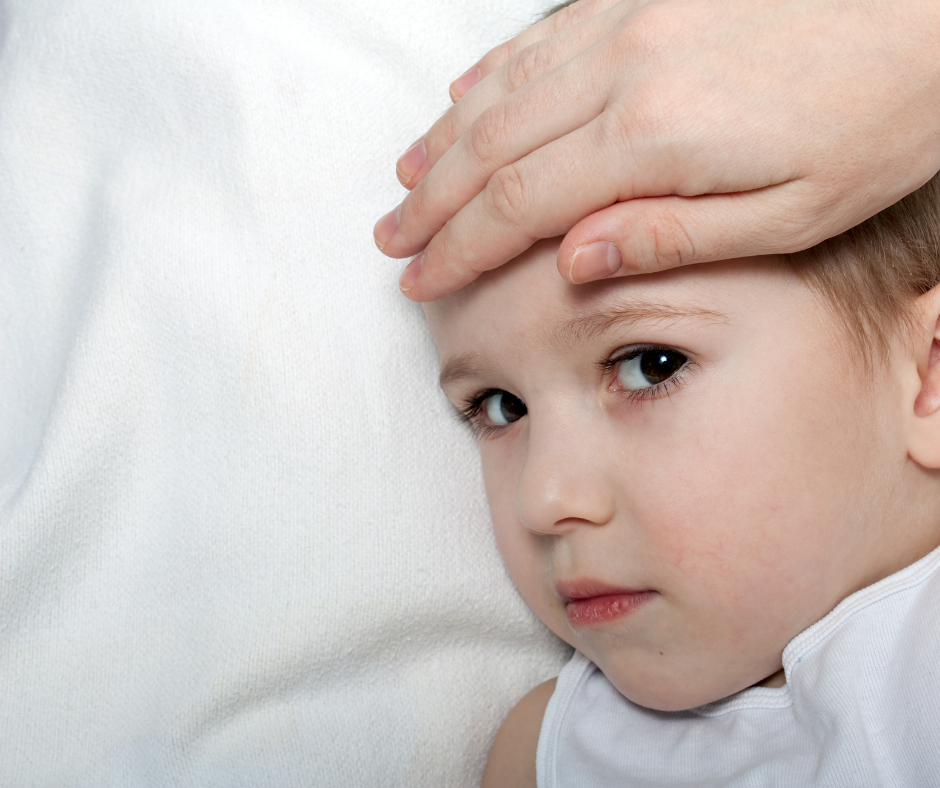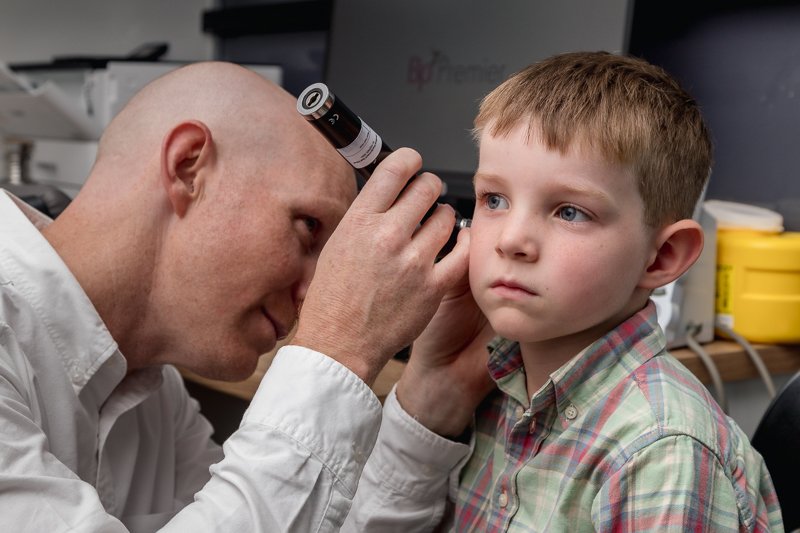Fever in Children: What to Do and When to Seek Medical Help
Discovering your child has a high temperature (fever) can be a stressful time for parents -- particularly if you’re unsure why your child is unwell or whether you should seek medical assistance.
It can be difficult to know when a fever is merely a symptom of a minor viral infection that will run its natural course, or when it’s an indicator of something more sinister that may require medical intervention.
We’ve put together information on typical signs of a fever, their causes and what you should do when your child experiences one below.
What is a fever?
A fever is a rise in body temperature and is categorised as 38 degrees or above in children.
Fevers are an important part of our body’s defence system and are a sign that we are fighting off an infection or other illness.
Higher body temperatures may make it harder for bacteria and viruses to survive, but they can also make your child feel pretty miserable in the process.
It’s always important to investigate and monitor your child’s fever, but even more important to monitor any symptoms of the underlying cause.
What are the signs of a fever
Your child has a fever when their temperature reaches 38 degrees or above on a thermometer.
The other signs and symptoms that come with your child’s fever will depend on the underlying reason their temperature has risen.
Additional signs and symptoms for a fever may include:
● Sweating
● Chills and shivering
● Headache
● Muscle aches
● Loss of appetite
● Irritability
● Dehydration
● General weakness
What causes fevers?
There’s a large range of conditions that can cause fevers in children. Some will run their own course and others can be more serious and require medical attention.
Common conditions, in order of frequency, that can cause fevers in children include:
● Infectious causes – over half of causes
○ Viral infections, like Common cold viruses or Influenza, Chicken pox, Measles, etc
○ Bacterial infections, like tonsillitis or Urinary tract inections
● Nil diagnosis or resolution before diagnosis
● Non infectious causes
○ Rheumatological disease, like juvenile arthritis
○ Neoplastic disease (significantly more rare compared to above)
● Assorted rare disease states like Kawaski disease, Inflammatory bowel disease, etc
When to seek medical assistance for a fever
You should always seek medical assistance if your child is experiencing any of the below:
● If your child is having difficulty breathing
● If your child has become non-responsive
● If your child has a fever and has not improved after 48 hours
● If your child is under six months old and has a temperature of 38 degrees or above
● If your child is immunocompromised and they have a temperature of 38 degrees or above
● If your child has a temperature of 39 or above.
You should also seek immediate medical assistance if their temperature is above 38°C and they have any of the following symptoms:
● a stiff neck or light is hurting their eyes
● vomiting and refusing to drink much
● a rash
● more sleepy than usual
● problems with breathing
● pain that doesn’t get better with pain relief medication.
● seem to be getting more unwell
● have had a febrile seizure
If none of the above apply to your child, treating your child’s fever at home is generally the best course of action. But remember if you are concerned you are always welcome to present at your local GP for assessment.
How to treat a fever at home
If your child doesn’t require medical attention, then there’s a number of actions you can take at home to keep them comfortable until they feel better.
● Make sure you keep their fluids up. Lots of small drinks are the best course of action - including regular breastfeeds or formula for babies; and plenty of water for older children.
● Give your child paracetamol and/or ibuprofen if the fever is making them miserable or they have other symptoms, such as a sore throat. Carefully follow the dosage instructions on the packaging. Do not give ibuprofen to babies under three months old or to any child who is dehydrated. Never give aspirin to children.
● Placing a room temperature damp cloth on their forehead can help cool them down. You should not put your child in a cold bath or shower.
● Dress your child in comfortable clothing that’s not too hot or cold. If your child is shivering, add another layer of clothing or a blanket until they stop.
How the Peregian Family Medical Centre can help
When your child has a fever, remember that this common condition is actually a sign of a body working to make itself well again and, chances are, your little one just needs rest, water and cuddles.
However, keeping an eye on their condition and ensuring you seek medical help when required is the best course of action to make sure they’re back to their usual self as quickly as possible. We recommend you keep a close eye on them, regularly take their temperature and keep track of any developing symptoms.
If you have any concerns at all we recommend coming in to see us at Peregian Family Medical Centre and getting checked out by a doctor or calling 000 incase of an emergency.
Disclaimer
All information is general in nature. Patients should consider their own personal circumstances and seek a second opinion.






